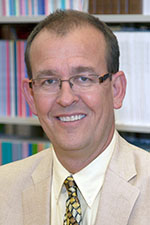James Hurrell co-authors Conversation article on solar geoengineering
A new report from the National Academies of Sciences, Engineering and Medicine tackles a controversial question: Is solar geoengineering – an approach designed to cool the Earth by reflecting sunlight back into space or modifying clouds – a potential tool for countering climate change?
The report, produced by a committee of 16 experts from diverse fields, does not take a position but concludes that the concept should be studied. It calls for creating a multidisciplinary research program, in coordination with other countries and managed by the U.S. Global Change Research Program, that seeks to fill in the many knowledge gaps on this issue.
The study emphasizes that such research is not a substitute for cutting greenhouse gas emissions and should be a minor part of the U.S. response to climate change. It notes that “engineering the climate” would not address the root cause of climate change – greenhouse gas emissions from human activities. And it calls for a research program that draws on physical science, social science and ethics and includes public input.
These perspectives from three members of the study committee underline the complexity of this issue.
Three options, many questions
By James W. Hurrell, Professor and Scott Presidential Chair of Environmental Science and Engineering
Solar geoengineering strategies are very controversial within and beyond the climate science community. It is a major step forward to have 16 experts from different disciplines agree that now is the time to establish a research program on this topic. Our committee traveled a long road to reach this recommendation, working through many complex and contentious issues to reach consensus, but we did it collegially and productively. Each of us learned a great deal.
The three options we considered raise many questions.
Read The Conversation article, “Solar geoengineering is worth studying but not a substitute for cutting emissions, study finds.”



